Recently, I found myself in a conversation with my dad about the impending end of my car lease. During this discussion, I suggested the idea of not having a car at all. Surprisingly, he thought it was a great idea. This moment made me realize that this was just one of many assumptions we never question in our lives.
In our journey through life, we often operate on autopilot, guided by a set of assumptions we hardly ever challenge. These assumptions, often absorbed from our society, family, and culture, subtly shape our choices, behaviors, and expectations. And sometimes, it takes a simple conversation about a car lease ending to bring these assumptions into sharp focus.
But what if we could challenge these invisible scripts? What if we could redefine our life’s trajectory by questioning these deeply ingrained assumptions? This post will explore seven such major assumptions that, when questioned, can lead to a profound shift in our perspective, opening up a world of possibilities and freedom. So, buckle up and prepare to embark on a journey of self-discovery and liberation.
1. Car Ownership: A Convenience or a Necessity?
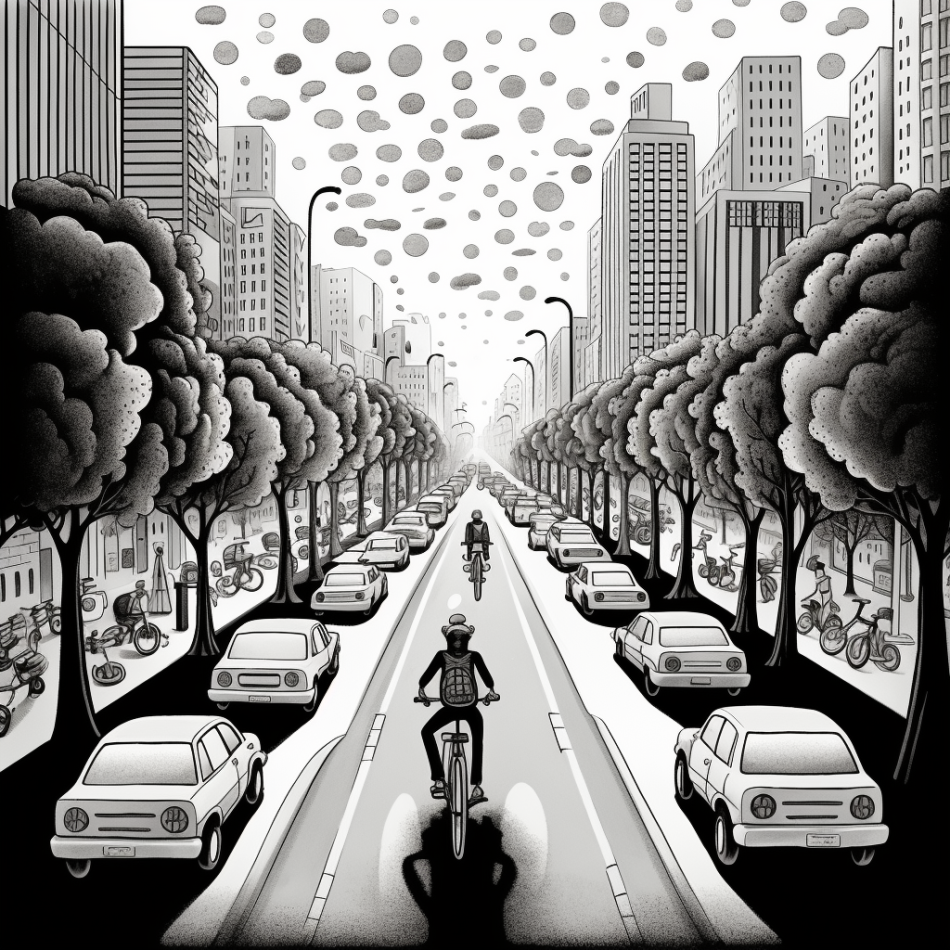
Unless you’re nestled in New York or a select few American cities where public transport is up to snuff, you probably take it as a given that you need a car.
But the meteoric rise of Lyft and Uber teaches us a different lesson: we don’t need a car of our own, we just need access to one. Delve into the core principle of these companies, and you’ll find a high demand for an underutilized resource.
The birth of these companies came from challenging the assumption that car ownership was a must.
Instead of simply accepting that you need a car, question what function it serves. Most of the time, your car is simply taking up space in driveways and parking lots.
However, there are certain circumstances where a car might genuinely be a necessity.
- You live in a location with inadequate or non-existent public transport, necessitating extensive driving.
- Your job involves a lot of driving, like delivery drivers or field service roles.
- You’re a sales rep with a wide client base.
- You’re a parent with kids who need transportation for school or extracurricular activities.
In these scenarios, a car is indispensable.
But without challenging assumptions, it’s tough to distinguish between necessities and necessary evils.
Living most of my adult life in California, I fell into the trap of perceiving a car as a necessary evil. Considering the abysmal state of public transport in Southern California, life without a car would be a nightmare.
Faced with an upcoming move to Boulder and the end of my car lease, I started questioning the long-held belief that car ownership was non-negotiable. My soon-to-be roommate, my cousin Inder, already owns a car. Plus, Boulder isn’t a sprawling city; the typical trip is just a couple of miles.
In a moment of enlightenment during a chat with my dad, I wondered – what if I abandon the car completely? It may sound extreme, but bear with me. I crunched some numbers and discovered that even if I use Uber seven or eight times a week, it’s still significantly cheaper than owning a car, given Boulder’s short distances.
Picture this. No car payment. No insurance. No gas. That’s a potential saving of roughly $1000 per month – cash that I’ve reluctantly allocated for these “necessary evils”. Now, I can redirect those funds towards things that truly bring me joy. It’s a bold shift in perspective, but one worth investigating, wouldn’t you agree?
Annie Duke offers a simple decision-making lesson: nearly all decisions are reversible, it’s just a matter of cost.
2. Home Ownership: A Universal Goal?
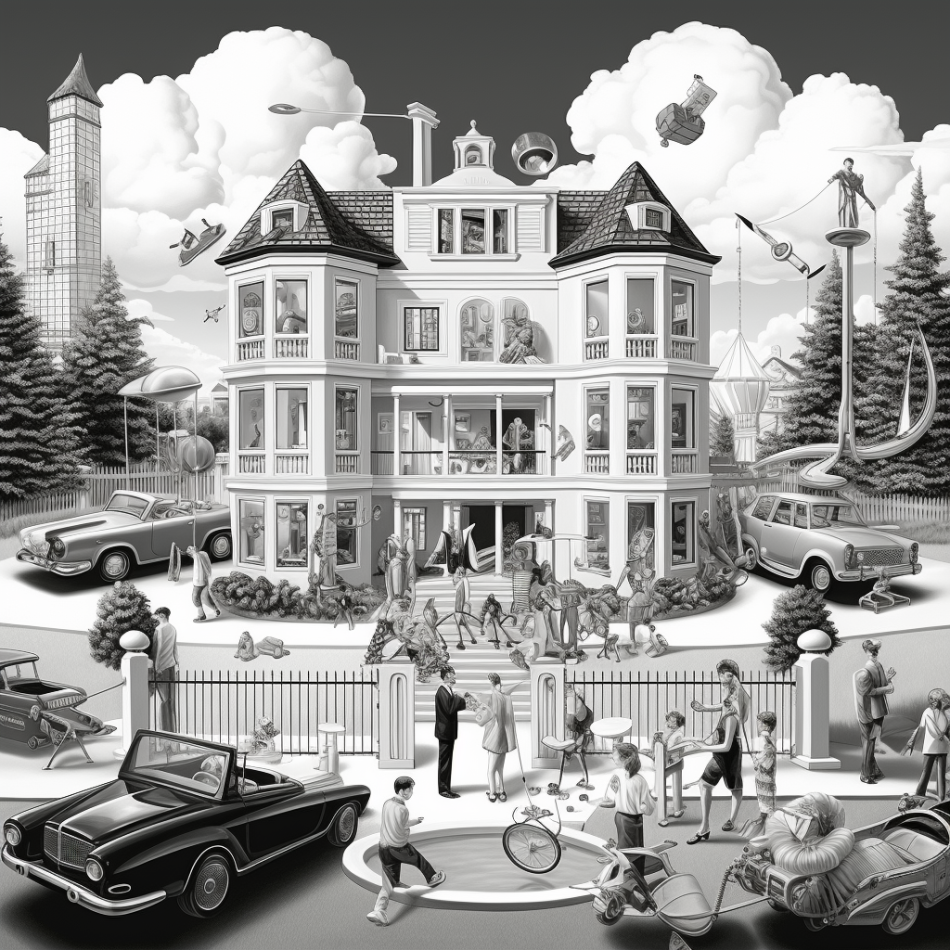
In a remarkable turn of events earlier this year, Edwin Castro won a staggering 2 billion dollars in the Powerball. Not one to shy away from splurging, he recently acquired a 47 million dollar mansion in Bel-air. And it wasn’t his first. But according to a Fortune magazine article, several financial advisors argued that he was making some grave mistakes.
“I’ve witnessed clients purchasing large homes in far-flung locations, ones they eventually realize they won’t use frequently. These properties end up being a significant, ongoing financial burden and often take several years to sell,” financial advisor Paul Karger confided to Fortune.
Karger estimates that the maintenance cost alone for these mansions could range anywhere between 225,000 and 1 million dollars a year. That’s a hefty amount to spend on a house that you barely inhabit.
Now, as you read this, you’re probably not daydreaming about owning a Bel Air Mansion. But there’s a chance you either own a home or are contemplating buying one.
Of all the assumptions we make in life, none seems to polarize people more than the merit of owning a home. When my former roommate Matt was mulling over buying a house, everyone he spoke to declared it was either the best or worst decision they’d ever made.
In an interview on the Unmistakable Creative, finance guru Ramit Sethi offered his perspective on how we spend money:
“I could purchase a house today, but I prefer renting. It’s convenient to have issues fixed by simply texting a landlord. Surprisingly, I generate more income by renting than buying. It’s crucial to challenge our cultural invisible scripts, like the necessity of home ownership. Does it truly embody the American dream? Is it mandatory to work a specific job or have kids? By questioning, we might still choose these paths, but at least it’s a conscious decision.” The critical phrase in the quote above is ‘conscious decision’.
Some might argue that a home is an asset that invariably appreciates in value. But converse with anyone whose life was upended by the 2008 financial crisis, and you might hear a different narrative. Individual opinions are not universal truths.
Frequently, people set a goal to buy a house because they believe it’s what they should do.
- For someone like my friend Matt, who didn’t have a family or kids, a house was a desire, not a necessity. Conversely, my sister has a 1-year-old, a bundle of energy showing no signs of slowing down. Given their desire to secure a good school district and ample space to play, it would make sense for her to buy a house.
If you don’t own a house but believe you need to, then ask yourself what assumptions are guiding that belief. Question those assumptions and you might discover that you don’t actually need a house.
3. Traditional Employment: The Only Way to Earn a Living?
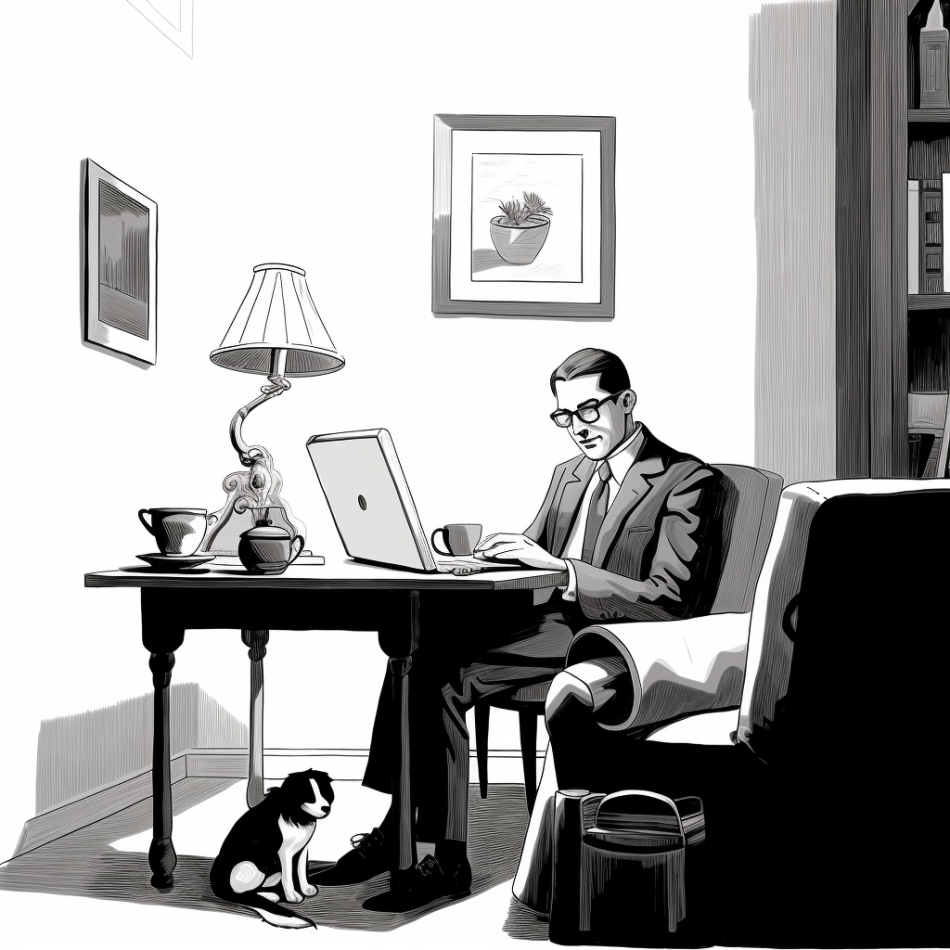
Two decades ago, a pair of individuals, long-standing members of the screen actors guild, found themselves in a challenging situation. Despite their best efforts, they were unable to secure roles. So, they took a bold decision to create their own employment — they penned a screenplay. Fast forward to today, they are celebrated names in the industry. You might find it hard to believe, but these individuals are none other than actors Matt Damon and Ben Affleck, the minds behind the acclaimed screenplay titled Good Will Hunting.
Rewind to 2009, the year I graduated from business school. The job market was in a gloomy state. Everyone was on a job hunt, but there were hardly any hirings. What struck me was that very few were considering the option of creating their own job. This mindset, sadly, leaves us at the mercy of being chosen, a concept eloquently referred to as the “tyranny of being picked” by Seth Godin. We find ourselves in a perpetual state of anticipation, waiting to be picked by a casting director, hiring manager, publisher, or any other gatekeeper who holds sway over our professional destiny.
The scarcity of job opportunities post-graduation nudged me to shift my focus from the opportunities handed to me to the possibilities around me. This realization made me understand that being an employee wasn’t the only avenue to earn a living. It was a timely realization, especially considering my history of being a less-than-ideal employee with a resume that resembled a rap sheet more than anything.
We’ve been conditioned to believe that securing a job to earn money is the norm — money that we then use to buy things made by others. But there’s an alternative — creating things that others wish to purchase, hence earning money.
The internet isn’t the brainchild behind freelancers, independent contractors, or entrepreneurs. Instead, it merely spotlighted them and broadened their horizons. These individuals have been around way before the dawn of the internet. It was only when terms like ‘gig economy’ and ‘creator economy’ became common parlance that people began to question the traditional assumption that employment is the sole avenue to earn a living.
Let me be clear, I’m not advocating for you to quit your job without a plan. That’s not being risky; it’s being reckless. But if you’ve been holding on to the belief that the only way to earn a living is by working for someone else, I urge you to question that assumption. You might just stumble upon a dozen other ways to earn a living — ways that you might enjoy far more than your current job.
4. Education: Is College the Only Path to Success?
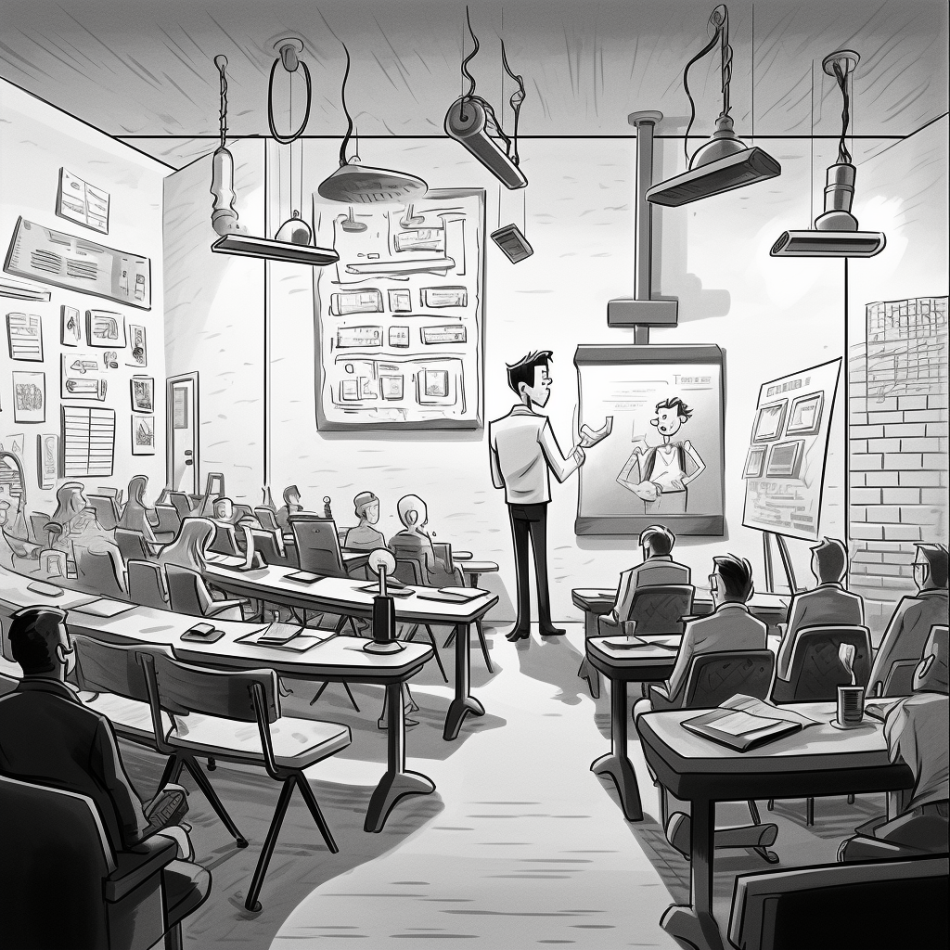
When you’re brought up in an Indian household, you’re often enveloped in an “Atmosphere of Expectation”. One of the heaviest expectations being the pursuit of a prestigious university education. However, the last quarter-century has cast a shadow of doubt over the direct correlation between college and success.
College undoubtedly opens doors. As Scott Galloway shared with me during our conversation on the Unmistakable Creative, “Despite my less than stellar GPA at UCLA, I managed to secure a place at Morgan Stanley and Berkeley’s business school. This was largely due to the credibility these institutions offered.” It’s crucial to understand that success isn’t solely a product of hard work and good character. In our society, the platforms we stand on and our pedigree play a significant role.
While it’s impossible to deny the doors that college can open and the credibility it can provide, it’s equally important to challenge the presumption that it’s the only pathway to success. This assumption carries potential repercussions, including massive student debt, degrees that don’t assure a job, and the significant opportunity cost of time spent at school. The reality is that college isn’t the right fit for everyone, and we need to acknowledge and respect alternative routes to success.
It’s essential to note the infamous examples of college dropouts, such as Mark Zuckerberg, Steve Jobs, and Bill Gates. Yet, we must remember that these individuals are exceptions to the rule. Their remarkable success stories are far from the typical outcomes for the average person who leaves college early.
However, when you challenge this assumption, you might uncover alternatives that yield the same results, more cost-effective ways to gain an education, and even unearth unique and fulfilling career paths that don’t necessitate a college degree.
In this era of digital information and online learning, the traditional education system is no longer the sole avenue to acquire knowledge or skills. Online courses, boot camps, and self-guided learning paths are gaining popularity, often providing more flexibility and affordability than a conventional college education. They empower individuals to learn at their own pace, in their own time, and often in the comfort of their own homes.
Moreover, apprenticeships, internships, and on-the-job training can offer practical experience and real-world skills directly applicable to many professions. These alternatives can pave the way to meaningful and successful careers in fields such as technology, arts, entrepreneurship, and trades, among others.
Another crucial element is the value of soft skills, like creativity, critical thinking, problem-solving, and interpersonal skills. These are often sidelined in traditional education systems, yet they are increasingly sought after in the contemporary workplace.
5. Retirement: Should We All Aim to Retire at 65?
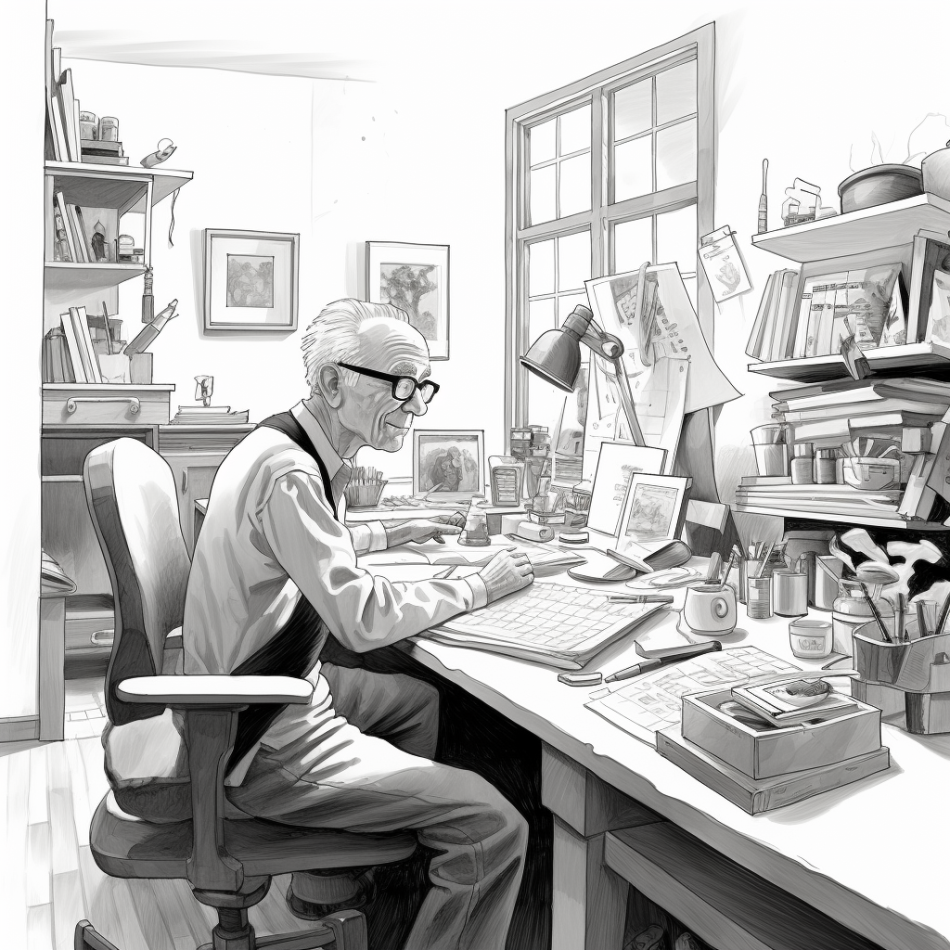
While the traditional retirement age was set at 65 for previous generations, there’s no concrete rule stating that we should all aim to retire at 65. In fact, it’s entirely possible that some of the most significant work of your career could happen later in life.
In his book Late Bloomers, Rich Karlgaard challenges our societal obsession with early achievement and the relentless push to peak early. He emphasizes that many of us make significant contributions later in life, often in ways we couldn’t have imagined when we were younger.
Karlgaard’s perspective is a powerful reminder that our potential isn’t tied to a timeline. It isn’t about when we peak, but how we use our experiences, talents, and passions to make meaningful contributions at every stage of our life.
So, rather than viewing retirement as the final stop, we could see it as a transition into a new phase of life where we continue to learn, grow, and contribute. This perspective can lead to a more fulfilling and active retirement, one where we continue to use our skills and knowledge in meaningful ways.
This view aligns with the advice of Ramit Sethi, who encourages us to ask bigger questions about our life and career. Instead of getting caught up in the minutiae, we should consider the bigger picture: Do we enjoy our job? Are we continuously learning and growing? Are we making a difference in a way that’s meaningful to us? Keeping these questions in mind can help us make the most of our working years and beyond, leading to a more fulfilling and active retirement.
In a conversation I had with Michael Ellsberg on the Unmistakable Creative, he suggested that “one of the best ways to increase your earnings is to expand the length of your working life.” This implies that retirement isn’t necessarily about stopping work altogether, but perhaps transitioning into a different type of work or simply slowing down. Retirement, then, becomes a state of mind. However, it’s important to note that when many people retire from their jobs, they often retire from their lives as well, which can lead to a lack of purpose and fulfillment.
Consider figures like Joe Biden, who is well over 65 and arguably has one of the most demanding high-stress jobs any human could have. His example demonstrates that age doesn’t have to limit our potential for meaningful work and contribution. Therefore, we should consider retirement not as an end point, but as a transition into a new phase of life where we continue to learn, grow, and contribute in ways that are meaningful to us.
6.The Double-Edged Sword of Positive Thinking

The promotion of positive thinking has become a minor industry in its own right. – Barbara Ereinirch, Bright-Sided
When The Secret hit the shelves in 2004, it unleashed a tsunami of belief in the law of attraction. Suddenly, everyone seemed convinced that they could lounge around, gazing at their vision boards, and wait for money to rain down. This sparked a flood of self-help books, seminars, and social media memes all touting the perks of positive thinking.
In an enlightening conversation with me, Dan Pink shared his perspective: “We are over-indexed on positive, especially us Americans. We’ve been ingrained with this idea that we should always be positive. That we should banish negativity, always look forward, never backward. Here’s the thing – it’s a flawed approach. It originates from a good place, acknowledging the importance of positive emotions and the benefits of optimism. But we’ve gone overboard, insisting on positive emotions exclusively.”
Like many assumptions we hold, the idea that we should always think positively can be misguided. It doesn’t allow us to stay grounded in reality. Perpetual positivity can make us vulnerable to poor choices and reckless risks. There’s inherent value in doubt, skepticism, and even negative thinking.
The Pseudoscience of Positive Thinking and the Law of Attraction
The law of attraction may sound appealing, but it falls apart under scrutiny.
Consider a somewhat ridiculous example. Suppose you want to lose weight. No amount of wishful thinking will magically make you shed pounds if your daily diet consists of donuts for breakfast, burgers for lunch, pizza for dinner, and a whiskey dessert.
Here’s another familiar scenario that further debunks the law of attraction: getting stuck in traffic.
When i interviewed Annie Duke about how we make the most important decisions of our lives, she aid the following.
If I’m worried about traffic, I’m worried that there might be traffic in the morning. And so therefore I end up in traffic tomorrow morning. First of all, did I do that to all the other people who are stuck in traffic or was it only the negative thinkers that are stuck in traffic? If I’m worried about getting caught in traffic tomorrow morning, what is that going to do? It’s going to make me think about how to avoid the traffic. Should I leave earlier? It’s the worrying about traffic, assuming that you actually do something about the things that you discover as you’re thinking about the obstacles that might get in your path, that actually will allow you to be successful.” – Annie Duke
Anyone who lives in Los Angeles will tell you that no matter how positive your thoughts are, if you’re stupid enough to get on the 405 in LA during rush hour, you WILL get stuck in traffic.
The Surprising Power of Negative thinking
Negative thinking is not the same thing as negativity. And in every domain we see examples of negative thinking that lead to positive results
Premortems
Premortems are a powerful technique that harnesses negative thinking to produce positive outcomes. This method involves envisioning the failure of a project before it begins and identifying potential issues that could lead to such failure. By doing so, we can proactively address those issues, thereby avoiding poor decisions and preventing problems before they occur. It serves as a remedy for overconfident optimism, grounding us in reality and helping to mitigate the risks associated with unchecked positivity. This form of negative thinking is thus a valuable tool in strategic planning and risk management.
Minimum Viable Products and Little Bets
Negative thinking fuels strategies like ‘Little Bets’ and ‘Minimum Viable Products (MVPs)’, aiding in successful product development and entrepreneurship. ‘Little Bets’ encourages small investments in potential projects to learn from potential failures and adapt, shifting focus from loss to learning. MVPs, prevalent in the tech startup world, involve launching a basic product to gather feedback for future development, mitigating risk by validating market potential early. Both strategies turn the potential for failure into a powerful learning and growth tool, making negative thinking a positive driver for success.
Negative Visualization
In her book, Rethinking Positive Thinking, Gabriele Oettingen cites the example of Michael Phelps using visualization to prepare for the Olympics. However, Phelps did not simply imagine himself standing on the podium. Instead, he visualized potential problems that might occur during his swim, such as his goggles filling with water. When this actually happened during a race, he was prepared because he had already mentally rehearsed this scenario.
This form of negative thinking allows us to anticipate worst-case scenarios and take steps to prevent them. Therefore, the assumption that we should always think positively is one that should be questioned and evaluated.
Ask yourself in every situation whether you should think positive. You might be surprised by how much better off you’d be served by negative thinking.
7. Living Location: Is Your Birth Country the Best Place for You?

Recently, my friend Matt and I were discussing potential cities where I might want to live. When we exhausted the list of American cities, he asked, “So where are you going to live?” As someone born outside the US and having grown up in various parts of the world, I found his question quite narrow.
It’s often the case that we get so attached to our birth countries that we overlook the vast array of living options available globally. In many of these places, our living standards and quality of life could be significantly higher. Just imagine earning in dollars and living in a country where the exchange rate makes your income worth five times as much.
Let me be clear, I’m not suggesting you impulsively sell your house and relocate to a beach in Thailand or indulge in any other digital nomad fantasies. My point is that we should challenge the assumption that our birth country is the only place we could live.
Living in another country for an extended period of time broadens your horizons and unveils possibilities you may have never considered. For instance, during my stay in Brazil, I observed that bars and nightclubs there don’t operate with open tabs. Instead, patrons are given a consumption card, which the waiter swipes with every order, and the bill is settled with the doorman at the end of the night. This system, in place since 2008, results in quicker service for customers and higher revenues for the business as people tend to consume more.
I found myself wondering why such a model hadn’t been adopted in the US. The technology isn’t complex; it’s a simple innovation that Brazilians leveraged to boost revenues.
By the same token, you might discover a business concept from your home country that doesn’t exist in the new country you’re exploring.
Spending your entire life in one place without venturing beyond its borders not only limits your horizon but also deprives you of the richness and depth that comes from experiencing other cultures.
How Questioning Major Assumptions Expands Your Perspective
In this journey of self-discovery and freedom, we’ve challenged seven major assumptions that often go unquestioned. We’ve heard from podcast guests and delved into books that have shed light on these ingrained beliefs. We’ve seen how these assumptions, when left unexamined, can limit our potential and narrow our worldview.
But what happens when we start questioning these assumptions? We open ourselves up to new possibilities, new ways of living, and new paths to success and happiness. We realize that there’s no one-size-fits-all approach to life, and that’s okay. In fact, it’s more than okay—it’s liberating.
So, I invite you to continue this journey beyond this article. Start questioning the assumptions you’ve held onto, whether they’re on this list or not. Engage in conversations, read widely, and most importantly, listen to your own inner voice.
Remember, the path to self-discovery and freedom begins with a single question: “Why?” Why do we believe what we believe? Why do we follow the paths laid out for us without questioning if they’re right for us?
As you embark on this journey, I’d love to hear about the assumptions you’re challenging and the discoveries you’re making. Share your stories, your insights, and your questions. After all, we’re all in this journey together.
